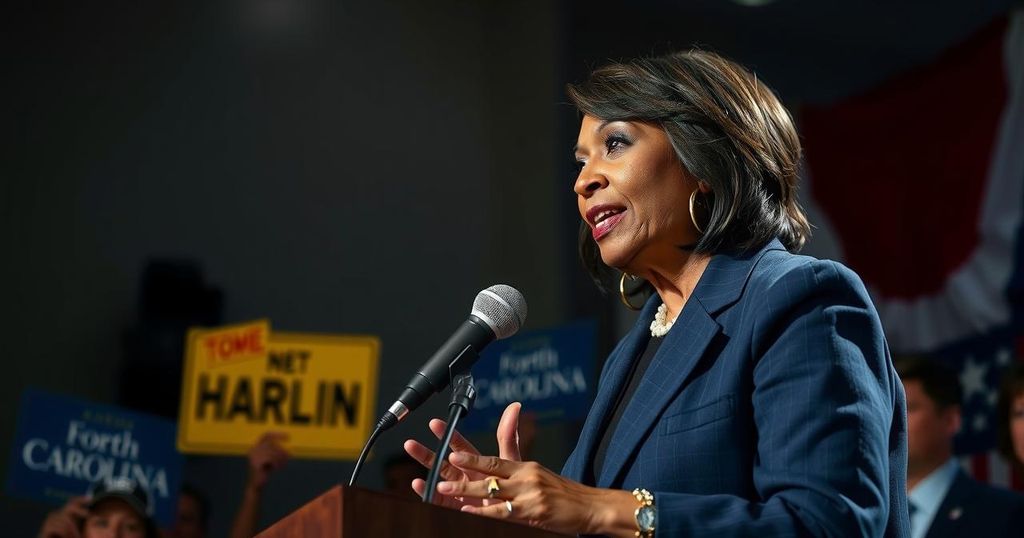With a week left before the elections, Kamala Harris and Donald Trump rallied in North Carolina, each addressing the fallout from Biden’s controversial comments regarding Trump supporters. While Harris defended unity and inclusion, Trump criticized Biden and maintained that his supporters represent a higher quality, framing the election as a pivotal moment for the nation.
On Wednesday, amidst the closing days of the 2024 presidential campaign, both Democratic Vice President Kamala Harris and Republican nominee Donald Trump held rallies in North Carolina, addressing crucial electoral issues and responding to recent controversial statements made during the campaign. Harris, having delivered a speech articulating her closing arguments for the Democratic campaign, found herself defending President Joe Biden who had inadvertently ignited backlash by labeling Trump supporters as “garbage”. In her comments to reporters, Harris asserted her strong disagreement with any disparagement of individuals based on their political affiliations. In a contrasting rhetoric, Trump seized upon Biden’s remarks, emphasizing that his supporters possess a higher quality than those associated with the Democrats, asserting, “You can’t lead America if you don’t love Americans.” Furthermore, Trump derisively stated that the Democrats’ treatment — or perceived mistreatment — of the American populace reflected a broader contempt. In the backdrop of this electoral contention, Trump reiterated claims that the U.S. is an “occupied country” and proposed a sweeping immigration plan, vowing to initiate a massive deportation initiative on his first day if elected. He utilized his platform to address the lack of endorsements from significant media outlets, interpreting it as an implicit acknowledgment of the inadequacies within the Democratic candidacy. Moreover, he defended his reputation against accusations of extremism by emphasizing his familial guidance to never use Nazi or Hitler comparisons, and reiterated his unwavering stance against such characterizations. Amidst the charged atmosphere in North Carolina, Kamala Harris articulated a contrasting vision, emphasizing collaboration and dialogue, noting, “Unlike Donald Trump, I don’t believe that people who disagree with me are the enemy.” This sentiment encapsulated her campaign approach advocating for unity and discourse against Trump’s combative rhetoric. As both candidates made their final appeals in a critical battleground state, the differences in their campaigning styles became starkly evident, underscoring the polarizing nature of the current political landscape leading up to Election Day.
The rallies in North Carolina come at a pivotal time in the United States’ political landscape, just days before the presidential election. The commentary surrounding Trump and Biden highlights the growing divisiveness in American politics, particularly as both candidates seek to solidify their support bases while appealing to undecided voters. Media portrayals and public opinions increasingly contribute to this charged environment, sparking strong reactions from both sides.
In conclusion, the contrasting approaches of Kamala Harris and Donald Trump illustrate the deepening rift in American political discourse. While Harris advocates for inclusiveness and understanding, Trump capitalizes on confrontation and division. As Election Day approaches, the choices presented to voters reflect broader ideological divides, marking this election as a critical juncture in American democracy.
Original Source: www.independent.co.uk







